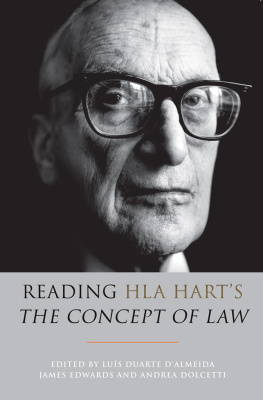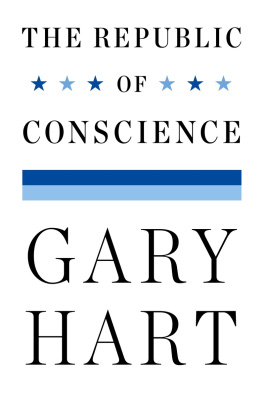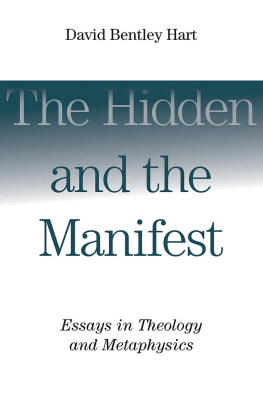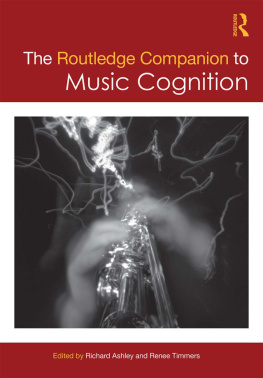READING HLA HARTS THE CONCEPT OF LAW
More than 50 years after it was first published, The Concept of Law remains the most important work of legal philosophy in the English-speaking world. In this volume, written for both students and specialists, 13 leading scholars look afresh at Harts great book.
Unique in format, the volume proceeds sequentially through all the main ideas in The Concept of Law: each contributor addresses a single chapter of Harts book, critically discussing its arguments in light of subsequent developments in the field. Four concluding essays assess the continued relevance for jurisprudence of the persistent questions identified by Hart at the beginning of The Concept of Law. The collection also includes Harts Answers to Eight Questions, written in 1988 and never before published in English.
Contributors include Timothy Endicott, Richard HS Tur, Pavlos Eleftheriadis, John Gardner, Grant Lamond, Nicos Stavropoulos, Leslie Green, John Tasioulas, Jeremy Waldron, John Finnis, Frederick Schauer, Pierluigi Chiassoni and Nicola Lacey.

This electronic edition published in 2013 by Bloomsbury Publishing Plc
Published in the United Kingdom by Hart Publishing Ltd
16C Worcester Place, Oxford, OX1 2JW
Telephone: +44 (0)1865 517530
Fax: +44 (0)1865 510710
E-mail:
Website: http://www.hartpub.co.uk
Published in North America (US and Canada) by
Hart Publishing
c/o International Specialized Book Services
920 NE 58th Avenue, Suite 300
Portland, OR 97213-3786
USA
Tel: +1 503 287 3093 or toll-free: (1) 800 944 6190
Fax: +1 503 280 8832
E-mail:
Website: http://www.isbs.com
The editors and contributors severally 2013
The editors and contributors have asserted their right under the Copyright, Designs and Patents Act 1988 to be identified as the authors of this work.
All rights reserved
You may not copy, distribute, transmit, reproduce or otherwise make available this publication (or any part of it) in any form, or by any means (including without limitation electronic, digital, optical, mechanical, photocopying, printing, recording or otherwise), without the prior written permission of the publisher. Any person who does any unauthorised act in relation to this publication may be liable to criminal prosecution and civil claims for damages
ISBN: 978-1-84946-324-9
EPUB: 978-1-7822-5216-0
To find out more about our authors and their books please visit www.bloomsbury.com where you will find extracts, author interviews and details of forthcoming events, and to be the first to hear about latest releases and special offers, sign up for our newsletters here.
Bloomsbury is a trade mark of Bloomsbury Publishing Plc
Contents
Lus Duarte dAlmeida, James Edwards and Andrea Dolcetti
Timothy Endicott
Richard HS Tur
Pavlos Eleftheriadis
John Gardner
Grant Lamond
Nicos Stavropoulos
John Tasioulas
Leslie Green
Jeremy Waldron
John Finnis
Frederick Schauer
Pierluigi Chiassoni
Nicola Lacey
Juan Ramn de Pramo
HLA Hart
Pierluigi Chiassoni is Professor of Jurisprudence at the University of Genoa.
Andrea Dolcetti is Non-Stipendiary Lecturer in Law at St Hildas College, University of Oxford.
Lus Duarte dAlmeida is Chancellors Fellow in Law at the University of Edinburgh.
James Edwards is Fellow and Lecturer in Law at Christs College, Cambridge.
Pavlos Eleftheriadis is a University Lecturer in Law and Fellow of Mansfield College, University of Oxford.
Timothy Endicott is Dean of the Faculty of Law, Professor of Legal Philosophy, and Fellow of Balliol College, University of Oxford.
John Finnis is Professor of Law and Legal Philosophy Emeritus at the University of Oxford, and Biolchini Professor of Law at the University of Notre Dame.
John Gardner is Professor of Jurisprudence and Fellow of University College, University of Oxford.
Leslie Green is Professor of the Philosophy of Law and Fellow of Balliol College, University of Oxford.
Nicola Lacey is Professor of Criminal Law and Legal Theory and Fellow of All Souls College, University of Oxford.
Grant Lamond is University Lecturer in Legal Philosophy and Felix Frankfurter Fellow of Balliol College, University of Oxford.
Juan Ramn de Pramo Argelles is Professor of Philosophy of Law, and Dean of the Faculty of Law and Social Sciences at the University of Castilla-La Mancha.
Frederick Schauer is David and Mary Harrison Distinguished Professor of Law at the University of Virginia.
Nicos Stavropoulos is University Lecturer in Legal Theory at the University of Oxford.
John Tasioulas is Quain Professor of Jurisprudence at the Faculty of Laws, University College London.
Richard HS Tur is Emeritus Fellow of Oriel College, University of Oxford.
Jeremy Waldron is University Professor at New York University School of Law, and Chichele Professor of Social and Political Theory at the University of Oxford.
LUS DUARTE DALMEIDA, JAMES EDWARDS AND ANDREA DOLCETTI
I. TO THE STUDENT
IN LAW AS elsewhere, we can know and yet not understand. Thus began HLA Harts 1953 inaugural lecture as Professor of Jurisprudence at Oxford.
The point is not that there is some radical divide between knowing and understanding. To further ones understanding, of law or anything else, is to further ones knowledge. The point is that there may be things we simultaneously know and yet do not fully understand. To further ones understanding of something is to further ones knowledge in depth, as it were, rather than in breadth. Hart expands on this in of The Concept of Law, but he had put matters more straightforwardly in a 1957 essay:
[I]t is characteristic not only of the use of legal concepts, but also of many concepts in other disciplines and in ordinary life, that we may have adequate mastery of them for the purpose of their day-to-day use; and yet they may still require elucidation; for we are puzzled when we try to understand our own conceptual apparatus. We may know how to use these concepts, but we cannot say how or describe how we do this in ways which are intelligible to others and indeed to ourselves. We know, and yet do not fully understand, even quite familiar features of legal thinking much in the way perhaps that a man may know his own way about a familiar town by rote without being able to draw a map of it or explain to others how he finds his way about the town.
In a sense, then, Hart does not in his work set out to tell his readers new things about law. He sets out to tell them new things about things they already know about law. of legal systems everywhere.
What propositions form part of this body of common knowledge? namely
(i) rules forbidding or enjoining certain types of behaviour under penalty; (ii) rules requiring people to compensate those whom they injure in certain ways; (iii) rules specifying what must be done to make wills, contracts or other arrangements which confer rights and create obligations; (iv) courts to determine what the rules are and when they have been broken; (v) a legislature to make new rules and abolish old ones.
Familiar as these facts may be, This may strike you as a somewhat immodest claim. How can Hart know what his readers, skilled lawyers or otherwise, do and do not understand? And supposing he were right, why should anyone bother to understand those facts any better? If even professional jurists may happily go about their lives equipped with whatever little understanding of law Hart is willing to grant them what reason could one have for developing more?
Next page






